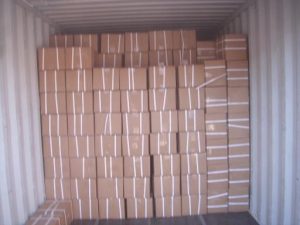Gelatin is a mixture of peptides and proteins derived from hydrolysis of collagen. As a collagen, this food thickener Gelatin is general recognized as halal.
From Quora: Due to my reading, there are different types of gelatin so each type has its self ruling:
Gelatin is an animal protein substance having gel-forming properties, and is used primarily in food products. It is derived from collagen, a protein found in animal skin and bone. This means that gelatin can be derived from animal skin or animal bone.
The shari`ah rule about animal skin differs from that of animal bone:
Animal skin or anything made from it can be considered tahir (pak) only if the animal had been slaughtered Islamically. Consequently, the gelatin derived from animal skin would be considered najis unless we know that the animal had been slaughtered Islamically. [Those present-day mujtahids who consider the animal slaughtered unIslamically as tahir but haram — their opinion does not affect this answer that much because in their opinion, even if that animal skin is tahir, it is still haram for consumption by human beings.]
Animal bone is considered tahir even if the animal had not been slaughtered Islamically. Bones have been exempted from the rule of maytah [i.e., an animal slaughtered unIslamically or died by itself.] However, this does not include the bones of pigs and dogs. Consequently, the gelatin derived from animal bones (other than pigs and dogs) is tahir even if the animal was not slaughtered Islamically.
What is the ruling on Gelatin?
Since gelatin is normally taken from the bones of a cow, it can be consumed even if the animal has not been slaughtered in an Islamic manner. This is because the bone is a part of the body in which there is no life.
Gelatin in Food Products
It is permissible to eat gelatin if one doubts whether it has been extracted from an animal or vegetable. But, if it is known that it was derived from an animal, then it is not permissible to eat without ascertaining that the animal was slaughtered according to sharí‘a. This prohibition applies, as a matter of obligatory precaution, even if it was extracted from animal bones.
Of course, if a chemical change occurs in the original ingredients during the process of manufacturing the gelatin, there is no problem at all in eating it. Similarly, even if one has doubt whether the animal was slaughtered Islamically or not, still there is no problem in adding the gelatin [made from that animal] to the food in such a minute amount that it is completely absorbed in it.
What is your ruling on having foods that contain gelatin?
What is Halal Gelatin?
It is a popular halal ingredient used in food and beverage. We have been supplying halal Gelatin for years.
The manufacturing process of Gelatin is according to Islamic law, and is free from pork products, alcohol and certain other ingredients.
Halal is an Arabic word meaning lawful or permitted. In reference to food, it is the dietary standard, as prescribed in the Koran.
By official definition, Halal foods are those that are:
1. Free from any component that Muslims are prohibited from consuming according to Islamic law.
2. Processed, made, produced, manufactured and/or stored using utensils, equipment and/or machinery that have been cleansed according to Islamic law.
All foods are considered Halal except the following:
-Alcoholic drinks and intoxicants
-Non-Halal animal fat
-Enzymes (microbial enzymes are permissible)
-Gelatine from non-Halal source (fish gelatine is Halal)
-L-cysteine (if from human hair)
-Lard
-Lipase (only animal lipase need be avoided)
-Non-Halal animal shortening
-Pork products
-Unspecified meat broth
-Rennet (All forms should be avoided except for plant, microbial and synthetic rennet, as well as rennet obtained from Halal slaughtered animals)
-Stock (mixed species broth or meat stock)
-Tallow (non-Halal species)
-Carnivorous animals, birds of prey and certain other animals
-Foods contaminated with any of the above products

